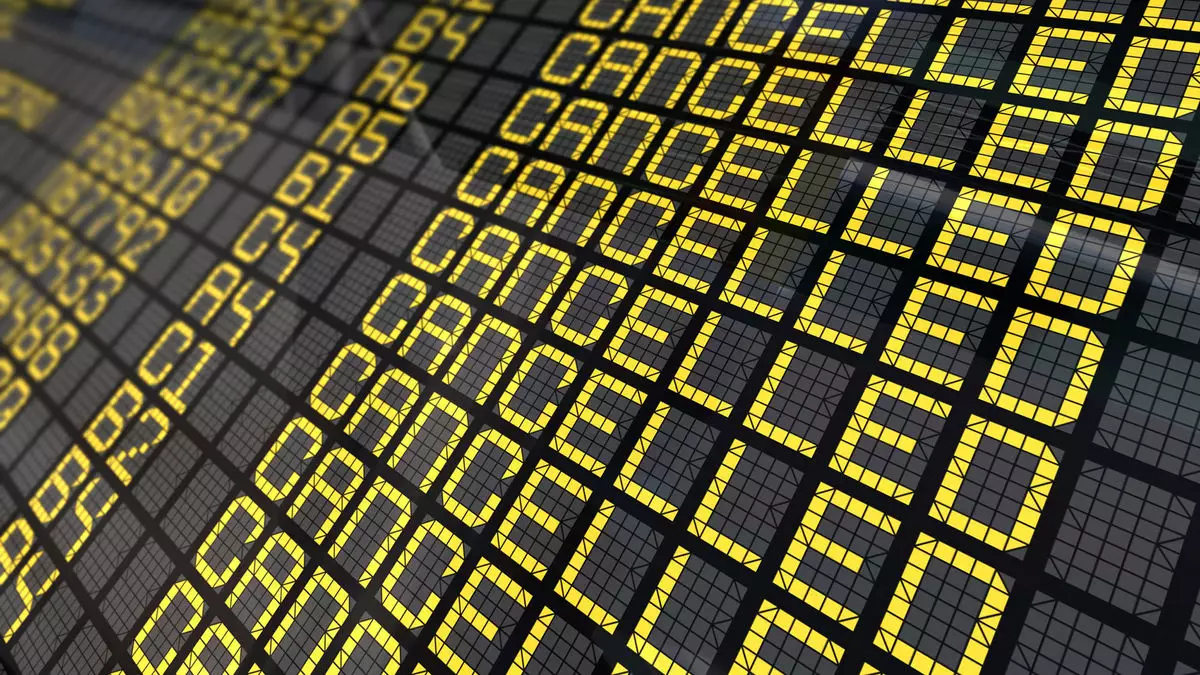The recent proposal from the U.S. Transportation Department (DOT), announced on December 5, marks a potential turning point in the relationship between airlines and their passengers. Under this proposed rule, airlines would be mandated to provide compensation for delays and cancellations lasting over three hours, provided these disruptions are attributable to the airlines themselves and not due to external factors like inclement weather. This anticipated change reflects a broader movement towards enhancing consumer rights in the airline industry and addressing the long-standing frustrations of travelers who have felt powerless in the face of airline mishaps.
This proposed framework is not entirely new; discussions around passenger compensation have been ongoing for several years. However, the launch of a formal proposal indicates a significant acceleration in the process, potentially fueled by the lessons learned during the pandemic. With air traffic rebounding and the public increasingly relying on air travel, there is a critical demand for improvements in service standards that reflect this revival.
As a fundamental component of the proposal, the DOT is exploring a tiered compensation system that would offer varying levels of reimbursement based on the length of the delay. Initial suggestions indicate amounts starting at $200 to $300 for delays of three to six hours, with increases to between $375 and $525 for six-hour delays, and up to $775 for delays of greater lengths. This structured approach aims to create clearer expectations for both passengers and airlines, establishing a standardized method of accountability.
Yet, the specifics of these compensation amounts remain subject to public input, which is both a democratic move and a necessary step in refining the guidelines. The involvement of consumers in shaping policy reflects a commitment to transparency and responsiveness from the DOT, yet one must wonder if this will actually lead to changes that resonate with the needs of passengers.
Understandably, the reaction from the airline industry has been contentious. Airlines for America (A4A), an influential trade organization, contends that the members already offer refunds, meal reimbursements, and rebooking options during significant delays. This grassroots if not disingenuous defense has focused on the potential negative consequences of the proposed compensation structure, warning that it could inflate ticket prices and diminish accessibility for budget-conscious travelers.
However, while the airlines express concerns over profitability and operational impacts, one cannot ignore the critical need for passenger welfare. The promise of additional compensation could serve as a strong incentive for airlines to mitigate delays and better manage their operations. The airlines’ historical tendency to prioritize profit over service may very well become an impediment to enforcing consumer rights.
Looking beyond American borders, it is worth noting that many other countries already have stringent measures in place regarding airline compensation. Canada, the U.K., Brazil, and the European Union (EU) hold airlines accountable with refund requirements for long delays and cancellations, often setting the bar high with maximum compensation reaching up to 600 euros under EU regulations. The effectiveness of such policies abroad raises important questions about why the United States has lagged in implementing similar protections for its consumers.
The differences in approach toward passenger compensation illustrate contrasting philosophies in regulating commercial aviation. The EU, for instance, has seen substantial improvements in passenger rights due to its comprehensive legislation, illustrating that a more robust framework for accountability can yield positive results for both consumers and the industry alike.
Ultimately, the DOT’s proposal represents a critical step toward revolutionizing consumer protections in the airline industry. By considering passenger feedback and outlining clear compensation frameworks, the Department has the opportunity to generate systemic change that prioritizes travelers’ rights. However, this initiative must not be merely a response to public pressure but rather a foundational shift in how the industry operates.
It is essential for the DOT to not only weave in compensation policies but also ensure that communication, accountability, and transparency rise to the forefront of the airline experience. The days of shrugging off consumer grievances cannot continue. A robust, fair compensation strategy stands to benefit airlines seeking to enhance their reputations while empowering passengers who have too long been subjected to the whims of operational failures. The time is ripe for an evolution in airline travel that respects and upholds the rights of consumers.


Leave a Reply